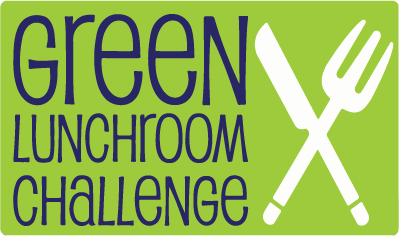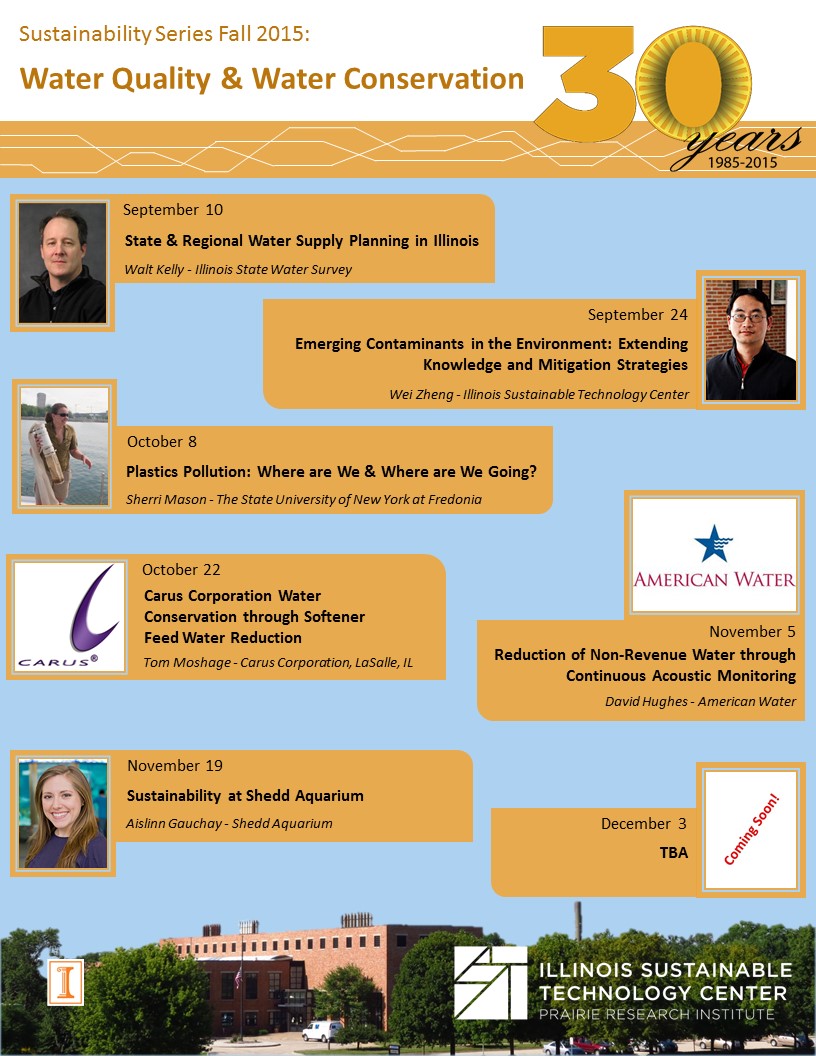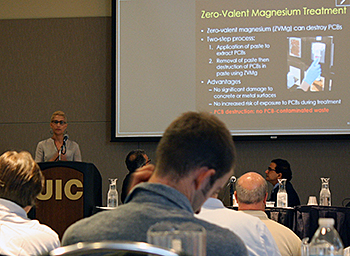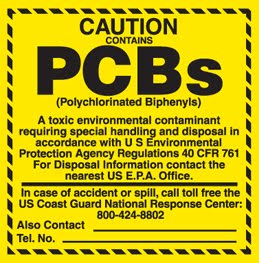Are you an IL school or district administrator, nutritionist, educator, or parent interested in food donation as part of your school’s food waste reduction strategy? Join the Green Lunchroom Challenge for a free webinar, Wednesday, November 18, from 3-4 PM to hear Dr. Kathleen Dietrich, Executive Director of Food Bus, Inc. describe how that organization assists schools in donating excess food to local pantries and food banks.
The Green Lunchroom Challenge is an ISTC project, funded by US EPA Region 5, focused on engaging K-12 schools in IL in food waste reduction and prevention strategies through a voluntary, friendly competition. Interested schools or school districts can sign up at https://www.greenlunchroom.org/, and complete any combination of suggested activities during the Challenge period (Sept. 1, 2015 – April 1, 2016). Participants earn points for each completed activity, and relative progress will be displayed on an online leaderboard. Resources and guidance will be available on the Challenge website and from ISTC technical assistance staff for each recommended activity. On Earth Day 2016, the school and district with the most points will be declared winners, and will receive public recognition and prizes (to be determined) to foster continuous improvement in food waste reduction. Donating excess food for human consumption is among the suggested Challenge activities.
Register for the webinar at https://attendee.gotowebinar.com/register/731005178672176385. Feel free to attend even if your school has not yet signed up for the Challenge, or if you don’t represent a school or school district and are simply interested in learning more about how schools in your area can donate excess food to prevent waste. Webinar participants will be able to ask questions and participate in discussion through the GoToWebinar chat box. If you are unable to attend the webinar live, it will be recorded and posted to the Challenge web site for later viewing. Questions about this webinar, the Green Lunchroom Challenge, or suggestions for future Challenge webinar topics may be addressed to Joy Scrogum.






 In the gaming world, a player caught cheating, using derogatory language, or other equally bad behavior will be “permabanned” or permanently banned from using the site where the bad behavior occurred. Well, that is exactly what the DeWitt count board did with PCBs (polychlorinated biphenyls) and MGP (manufactured-gas-plant) wastes. On April 23, 2015, the DeWitt county board voted to approve a settlement agreement with the owners of Clinton Landfill (near Clinton, IL) that keeps PCBs and MGP wastes out of the landfill. This ends a 7-year dispute between the landfill owners and groups opposed to PCB disposal there. Two articles from The News-Gazette sum up the happenings
In the gaming world, a player caught cheating, using derogatory language, or other equally bad behavior will be “permabanned” or permanently banned from using the site where the bad behavior occurred. Well, that is exactly what the DeWitt count board did with PCBs (polychlorinated biphenyls) and MGP (manufactured-gas-plant) wastes. On April 23, 2015, the DeWitt county board voted to approve a settlement agreement with the owners of Clinton Landfill (near Clinton, IL) that keeps PCBs and MGP wastes out of the landfill. This ends a 7-year dispute between the landfill owners and groups opposed to PCB disposal there. Two articles from The News-Gazette sum up the happenings 
